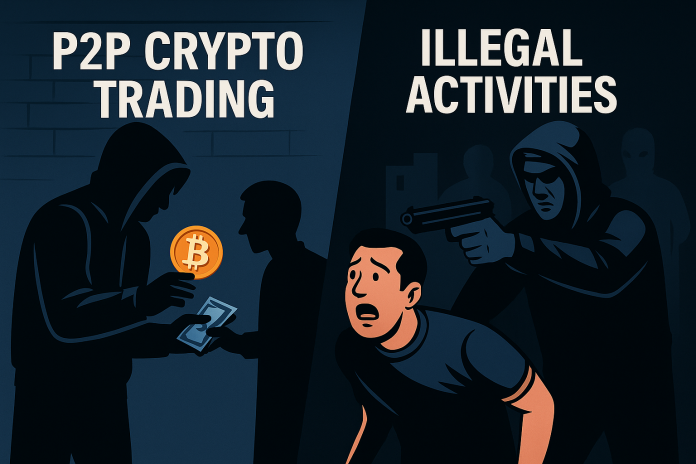
As public interest in digital assets grows, a shadow market is emerging alongside it: peer-to-peer (P2P) crypto transactions conducted outside of regulated exchanges. These over-the-counter (OTC) trades, often arranged through Telegram or private chatrooms, are increasingly linked to fraud, theft, assault, and even kidnapping, exploiting the anonymity and lack of oversight in such deals.
One recent incident in Seoul’s Gangseo District highlights the growing threat. A group of Russian nationals allegedly lured more than 10 individuals to a hotel under the pretense of purchasing Tether (USDT) with cash. Once there, some victims were met with fake firearms, tasers, body armor, and restraints, leading to attempted assault and confinement. While two suspects were arrested at the scene, others fled overseas and are now the subject of an Interpol investigation.
Similar cases have surfaced across the country. In Jeju, a group of Chinese nationals reportedly received over ₩840 million worth of crypto and disappeared without paying. Another case in Seoul’s Seocho District involved a ₩500 million USDT transaction where the buyer vanished after receiving the tokens.
These crimes are not isolated. P2P trading is being exploited for money laundering, voice phishing, online gambling, and drug trafficking. With most of these transactions occurring through unregistered OTC brokers, victims often have little legal recourse when things go wrong.
Legal experts warn that such illicit platforms could face charges under Korea’s Criminal Act and Capital Markets Act, as well as violations of anti-money laundering laws.
“Chasing a small price advantage through unprotected OTC trades may expose investors not only to financial losses but also serious physical danger,” said a digital asset security analyst. Experts strongly recommend using licensed exchanges or platforms with escrow services to ensure safety.






